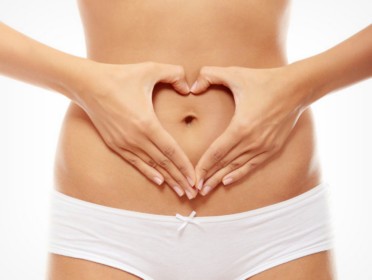
You could be forgiven for thinking that probiotics, or “good” bacteria found in our digestive system as well as in foods and supplements, hold the answer to all our health problems. They are available in a variety of forms, from yoghurts and fermented drinks to powders and capsules, and the health claims that accompany them are just as diverse. But what do the medical experts say?
“So far, the research says that probiotics aren’t the cure-all everyone thinks they are, but they are beneficial for certain conditions,” says Dr Daniel Lemberg, gastroenterologist and department head at Sydney Children’s Hospital, and co-author of a review of probiotics research published in the Medical Journal Of Australia.
Dr Vicki Kotsirilos, a Melbourne-based GP and authority on integrative and complementary medicines, says probiotics are not a magic pill for health, but their benefi ts are “really exciting”. “I’m thrilled to see patients benefit from them, and that those benefits are supported by a growing body of scientific evidence,” she says.
The important message for consumers is that the type and strength make all the difference. “Different probiotics treat different conditions, in the same way as antibiotics do,” Lemberg says.
The strength of a probiotic is measured in colony forming units (CFU). Experts and research differ on the minimum amount of CFU required in a dose of probiotic in order for it to be clinically effective, with recommendations ranging from two billion to more than 10 billion CFU per dose.
“Most foods may not contain adequate live concentrations of probiotics,” Kotsirilos says.
body+soul spoke to several leading authorities on probiotics. Here are their verdicts.
Proven benefits for…
Diarrhoea caused by antibiotics and infection
“This is an area where probiotics really make a difference,” Lemberg says.
With antibiotic-related diarrhoea, which occurs in up to a quarter of patients, the research shows both Lactobacillus rhamnosus GG and Saccharomyces boulardii help prevent symptoms, particularly in children, Lemberg says.
As a general guide, he advises taking probiotics alongside antibiotics and then for 10 to 14 days afterwards.
With infectious diarrhoea, which commonly affects young children, Lemberg says taking Lactobacillus rhamnosus GG early in the illness signifi cantly reduces the length of symptoms, but says you should check the dosage. “There has to be more than 10 billion CFU in a dose for it to work, so yoghurts aren’t going to cut it.”
Inflammatory bowel disease
There is solid evidence that the probiotic VSL#3 helps people with ulcerative colitis (the main type of infl ammatory bowel disease) after they have undergone surgery for the disease, Lemberg says. “It helps prevent a relapse, and helps prevent and treat pouchitis, a condition that may arise from the surgery,” he says.
Ulcerative colitis is estimated to affect between 30,000 and 40,000 Australians.
Likely benefits for…
Female genital health
Kotsirilos says probiotics may help reduce the recurrence of vaginal candidiasis (thrush) and bacterial vaginosis.
“I’ve been using it for patients for 20 years, and it’s backed by some research,” Kotsirilos says.
She says the strains with the most evidence behind them are Lactobacillus rhamnosus and Lactobacillus acidophilus, which can be taken as vaginal pessaries.
“If it’s a mild case, we may just use the good bacteria with hygiene advice, but if it’s severe, I’d recommend a course of antibiotics followed by the probiotics.”
Boosting immunity and recovery in highly active people
If you are one of the many who trained through winter for a running event and were struck down by a cold, a probiotic may help.
“There’s some really exciting possibilities here,” says Professor David Pyne, senior physiologist with the Australian Institute of Sport and a probiotics researcher.
In a recent research review, Pyne found probiotics reduce the duration and severity of colds in athletes and highly active people. “It’s not going to improve your athletic performance, but it will allow you to get back to training and normal life quicker,” he says.
While there is no one strain that has been proven to be the most effective, studies have shown beneficial results with the strains Lactobacillus fermentum and Lactobacillus casei (Shirota).
Pyne warns taking a probiotic isn’t going to do much good if your diet, lifestyle and stress levels are unhealthy. “Your immune system is affected by a whole range of factors, so probiotics aren’t a magic pill.”
Irritable bowel syndrome
Experts don’t all agree on the usefulness of probiotics in this area. Lemberg says the evidence is inconclusive, but Kotsirilos says there is some evidence supporting the strain Lactobacillus plantarum. She recommends it to some of her patients with irritable bowel syndrome(IBS).
“It can reduce the severity of abdominal pain and produce better-formed stools,” she says, but adds that probiotics are just one aspect of IBS treatment. “It’s just as important to eat fermented foods like sauerkraut, and foods rich in the soluble fi bre inulin, as they also build up good bacteria in the gut,” she says.
Possible future benefits for…
Allergic disorders in young kids
“It’s too early to recommend a particular probiotic to prevent or reduceallergic disease, but in five to 10 years we probably will be able to,” says Associate Professor Mimi Tang, head of Allergy and Immunology at The Royal Children’s Hospital in Melbourne, who is involved in ongoing probiotics research.
The general research in this area focuses on the effect of various probiotics on allergic disorders in infants when taken by the mother during pregnancy, and also by the infants themselves. The findings are still inconclusive, Tang says, but there is confi dence among researchers that bacteria plays a crucial role in immunology.
For now, Tang says the best ways to lower the risk of allergic disorders are those listed in national guidelines, which include not smoking during pregnancy or around your baby, breastfeeding for at least six months and delaying the introduction of solid foods until four to six months.
Anxiety and depression
The research into probiotics’ effects on anxiety and depression is in its infancy, but has so far produced encouraging results.
A recent study by researchers in Ireland and Canada found mice fed the probiotic Lactobacillus rhamnosus JB-1 showed significantly fewer stress, anxiety and depression-related behaviours. They also had lower levels of the stress-induced hormone, corticosterone. Study authors say it shows probiotics have the potential to alter brain neurochemistry in humans and to treat anxiety- and depressionrelated disorders.
Source: bodyandSoul
 We are sharing information for knowledge. Presented by. SocialDiary.Net
We are sharing information for knowledge. Presented by. SocialDiary.Net



